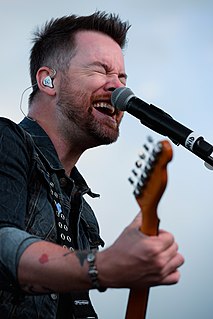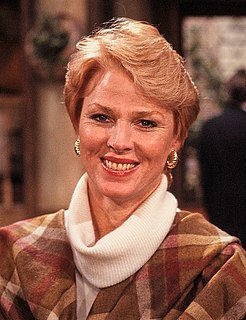A Quote by Paul Dini
I've always felt in my own small, little way that if I could just write a story where it works out well, where the scales of justice are balanced, then that's something that I do really love to see in the world.
Related Quotes
I had a lot of great lakes of ignorance that I was up against, I would write what I knew in almost like islands that were rising up out of the oceans. Then I would take time off and read, sometimes for months, then I would write more of what I knew, and saw what I could see, as much as the story as I could see. And then at a certain point I had to write out what I thought was the plot because it was so hard to keep it all together in my head. And then I started to write in a more linear way.
I always believe that every song tells a story, so the last thing I want to do is edit out like the meat of the story. I would pick songs based off a), whether I felt like I could do anything with them, and b) whether I felt like I could keep the story intact. And then you sit in with one of the piano players and one of the vocal coaches and kind of work out your arrangements that way.
I really loved it because it really informed his way of seeing my character and the story. If you look closely he always had this metaphor of an egg, of a little chick pecking her way out of a shell, and in one scene in the kitchen there are all these white plates on a wall and then in the middle there is a yellow plate so even that looks like an egg. And a lot of the furniture was almost sculpted in that way as well. It was really cool to see that.
I think the reason why 'Star Trek' works so well was its small family feeling. The show felt small, you could see the mistakes, you could see rocks weren't rocks. You caught them at it all the time, but you didn't care because you were so hooked to the people and to the stories. It was a fabulous show.
Elena had always felt like the center of her own world - who doesn't? The world arranged itself around her like petals around the stem of a flower. This way the meadows, that way the woodland. Over here, the baryn's estate, out there, the hills that hug the known world close and imply a world at beyond. She could never come up with the edge of a world, because it always kept going on beyond. She moved the center of the world as she walked. The world was balanced on her head.
I was entirely wrapped up in the idea of becoming an actor. I learned how to write on the job, basically out of necessity. I always thought it'd be fun to write something, but it never was an ambition of mine, per se. I just thought, "Well, maybe I'll do it one day just for the hell of it and see if it works."
I felt like if I could get the epiphany out of the way in my drafting process, through my eighth or tenth draft, then that can just be part of how I've assembled the character, and then we can move on and move forward with it. In general, I don't ever want to feel smarter than my characters, because I just feel like that's not a great way to write a story.
I just started trying to figure out how to write [something] which was unlike anything anybody had ever seen, and once I felt like I had figured that out I tried to figure out what kind of book I could write that would be unlike anything anybody had ever seen. When I started writing A Million Little Pieces I felt like it was the right story with the style I had been looking for, and I just kept going.
I found it was my good fortune to somehow be able to work in these forms that I loved when I was a kid. I love movies and I could write screenplays. I love theater and I could write plays. I mean, they would be my own, I could never write what was used to be called the well-made play. But my first play, "Little Murders," turned out to be a great success and a great influence on plays at that time.
You don't really see a muscle as a part of you, in a way. You see it as a thing. You look at it as a thing and you say well this thing has to be built a little longer, the bicep has to be longer; or the tricep has to be thicker here in the elbow area. And you look at it and it doesn't even seem to belong to you. Like a sculpture. Then after looking at it a sculptor goes in with his thing and works a little bit, and you do maybe then some extra forced reps to get this lower part out. You form it. Just like a sculpture.
The world in books seemed so much more alive to me than anything outside. I could see things I'd never seen before. Books and music were my best friends. I had a couple of good friends at school, but never met anyone I could really speak my heart to. We'd just make small talk, play soccer together. When something bothered me, I didn't talk with anyone about it. I thought it over all by myself, came to a conclusion, and took action alone. Not that I really felt lonely. I thought that's just the way things are. Human beings, in the final analysis, have to survive on their own.
People who take books on sex to bed become frigid. You get self-conscious. You can't think a story. You can't think, "I shall do a story to improve mankind." Well, it's nonsense. All the great stories, all the really worthwhile plays, are emotional experiences. If you have to ask yourself whether or not you love a girl or you love a boy, forget it. You don't. A story is the same way. You either feel a story and need to write it, or you better not write it.
You have to do three things really well to make a successful film. You have to tell a compelling story that has a story that is unpredictable, that keeps people on the edge of their seat where they can't wait to see what happens next. You then populate that story with really memorable and appealing characters. And then, you put that story and those characters in a believable world, not realistic but believable for the story that you're telling.




































